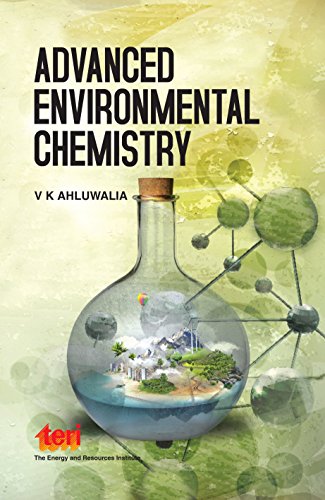Ph.D. in Chemistry - Environmental Toxicology: Introduction, Admission, Registration, Eligibility, Duration, Fees, Syllabus 2024

Introduction:
A Ph.D. in Chemistry with a specialization in Environmental Toxicology is designed for students interested in the study of chemicals in the environment and their effects on human health and ecosystems. This interdisciplinary program combines rigorous training in chemistry with comprehensive studies in toxicology and environmental science. Graduates are equipped to conduct research that contributes to safer environmental practices and healthier living conditions, addressing some of the most pressing environmental issues of our times.
Admission Process:
The admission process for a Ph.D. in Chemistry - Environmental Toxicology generally includes:
- Application Submission: Submission of a detailed application along with a statement of purpose, CV, and official academic transcripts.
- Educational Background: A master’s degree in chemistry, toxicology, environmental science, or a related field. Exceptional candidates with a bachelor's degree may also be considered.
- GRE Scores: Most programs require GRE scores, particularly focusing on the quantitative and analytical writing sections.
- Letters of Recommendation: Typically, three letters from academic or professional references familiar with the candidate’s abilities.
- Research Proposal: Submission of a research proposal that outlines potential research topics and their relevance to environmental toxicology.
- Interview: Personal or virtual interviews with program faculty to assess the applicant's interests and fit for the program.
Eligibility:
To be eligible for this program, applicants usually need to meet the following criteria:
- Relevant Academic Qualifications: Degrees in relevant fields such as chemistry, biology, or environmental science.
- Research Experience: Demonstrable experience in research settings, preferably related to toxicology or environmental sciences.
- Quantitative Skills: Strong background in chemistry and mathematics.
- Analytical Skills: Ability to analyze complex data and synthesize information from multiple sources.
- Communication Skills: Excellent written and oral communication skills are crucial for disseminating research findings.
- Motivation and Commitment: A demonstrated commitment to environmental issues and the protection of public health.
Completion Time:
Completing a Ph.D. in Chemistry - Environmental Toxicology typically takes between 4 to 6 years, depending on the student’s research progress and dissertation completion.
Career Opportunities:
Graduates of this program have diverse career opportunities in:
- Academic and Research Institutions: Conducting research and teaching at universities.
- Government Agencies: Working with environmental protection agencies or public health departments.
- Environmental Consulting Firms: Advising businesses on compliance with environmental regulations and sustainable practices.
- Pharmaceutical Companies: Developing safer pharmaceuticals and conducting risk assessments.
- Non-Profit Organizations: Advocating for environmental health and safety.
- Private Research Labs: Conducting high-impact research on environmental contaminants and their effects.
Syllabus:
The Ph.D. curriculum may include courses such as:
- Advanced Analytical Chemistry
- Toxicology and Human Health
- Environmental Chemistry
- Risk Assessment
- Statistical Methods for Environmental Research
- Ecotoxicology
Internship Opportunities:
Internships can provide practical experience and professional networking:
- Environmental Agencies: Internships with EPA or similar organizations.
- Research Institutes: Working on specific environmental projects.
- Corporate Internships: Placements in industry to learn about environmental compliance and safety protocols.
- Public Health Departments: Understanding the intersection of environmental science and public health.
- Non-Governmental Organizations: Engaging in advocacy and research focused on environmental health.
Scholarships and Grants:
Various funding options are available:
- University Scholarships: Often covering tuition and providing a stipend.
- Government Grants: For research projects with a direct impact on public health and the environment.
- Private Foundations: Funding from organizations interested in promoting environmental health.
- Corporate Scholarships: From companies investing in environmental stewardship.
- International Grants: For international students or projects with a global scope.
FAQs:
What is Environmental Toxicology?
It's the study of the effects of chemicals on human health and the environment.
What prerequisites are needed for a Ph.D. in Environmental Toxicology?
A background in chemistry, biology, or environmental science, along with research experience.
What type of research is conducted in this Ph.D. program?
Research often focuses on the detection, effects, and mitigation of environmental pollutants.
Are there practical training opportunities during the program?
Yes, internships and lab work are crucial components of the program.
How can I fund my Ph.D. studies in Environmental Toxicology?
Through scholarships, grants, and fellowships specifically aimed at environmental research.
